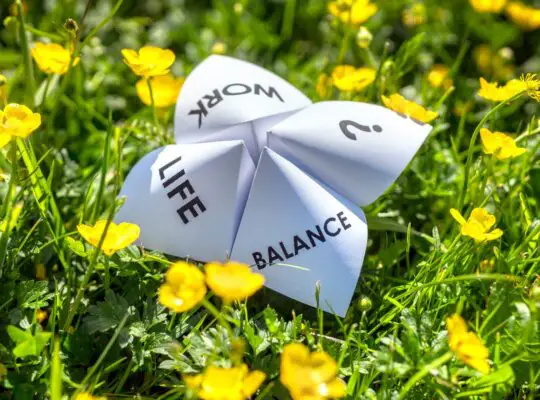Stress is an inevitable part of life and can be caused by a variety of factors such as work pressure, financial problems, health concerns, and more. While it is common to experience stress, prolonged and chronic stress can negatively impact your physical and mental health.
Relationships can also be a significant source of stress in people’s lives. You have different types of relationships, including romantic, familial, and professional, and each comes with its own unique set of expectations and responsibilities.
When these expectations are not met or conflicts arise, relationships can become a significant source of stress in your life. On the contrary, excess stress within your relationship with someone else can damage and change the nature of that relationship permanently, making it a challenge to restore it again.
For instance, a strained relationship with a spouse or partner can cause emotional distress, leading to anxiety, depression, and other mental health problems. Similarly, conflicts with family members or colleagues can create tension, affect your self-esteem, and cause physical symptoms such as headaches or stomach aches. Therefore, it is crucial to recognize the potential sources of stress in your many relationships and develop strategies to address them effectively.
5 Common Signs Of Relationship Related Stress
There are several key signs that a relationship is either experiencing stress within itself or causing stress within your life, and it is essential to recognize these signs early to take appropriate steps to manage the stress and prevent it from escalating further. Consider these common signs that a relationship is causing stress, as discussed by Healthline’s coverage of relationship anxiety:
1| You and another person in your life are getting into constant arguments.
Frequent arguments, bickering, and disagreeing can be a sign that a relationship is causing stress. While the occasional argument or disagreement is completely normal in every relationship, pay close attention to how often these are occurring.
Frequent disagreements and arguments can cause emotional exhaustion, and those negative emotions can spill over into other areas of your life. While the arguments themselves are already tedious and exhausting, their root causes are likely even more stressful and poisonous to the relationship and your own wellbeing.
2| You feel yourself (or the other person) wanting to withdraw from the relationship.
If one or both parties in a relationship start to withdraw emotionally and/or physically, depending on the nature of the relationship you two share, it can indicate that you are both experiencing some serious stress. Withdrawal can manifest as a lack of communication, a reluctance to spend time together, or an inability to share thoughts and feelings.
This can quickly translate into an avoidance of each other. Pay close attention to how you are interacting with each other and take note of any significant changes in communication or frequency of time spent together to determine if one or both parties are attempting to withdraw themselves.
3| You feel like you cannot really trust the other person in the relationship anymore.
Trust is a vital component of any healthy relationship. If there is a lack of trust, it can cause feelings of anxiety and stress, which can negatively impact the relationship. Think of a sense of trust in a relationship like the foundation of a house – without it, nothing else can be built within the relationship at all.
If you are experiencing stress within a relationship, you may feel a shift in your trust dynamics with the other person – where trust once easily existed, it now may be absent. This can alter the entire dynamic and structure of a relationship.
4| You notice that you are experiencing physical symptoms.
Stress can manifest itself in physical symptoms such as headaches, stomach aches, fatigue, or insomnia. If you experience these symptoms regularly in the context of a relationship, it could be a sign that the relationship is causing you excessive stress.
For example, if you develop a huge headache after getting into yet another argument with your partner, then it may be a sign that you are experiencing some serious relationship related stress that is causing physical symptoms within your body.
5| You begin to develop a negative self-image.
A relationship that causes stress can make you feel insecure, inadequate, and unworthy, even in contexts outside of your relationship with the other person. If you find yourself struggling with negative self-talk or low self-esteem due to a relationship, it may be a sign that the relationship is causing you excessive stress that needs to be addressed.
7 Common Sources Of Stress Within Relationships
There are many sources of stress within relationships, and the specific ones can vary depending on the individuals involved and the nature of the relationship they share with each other. However, there are some common sources of stress within relationships, such as…
1| Struggling to maintain good, open, and clear communication.
Misunderstandings, misinterpretations, and conflicts in communication can cause significant stress in relationships. This can include difficulties expressing oneself, not listening actively, or not being on the same page with the other person.
In a 2018 article for the University of Nevada, Reno, psychology doctoral candidate Rosie Shrout explains that stress is common in every relationship, and learning how to communicate about it is the key to managing it in a healthy and productive manner. When this communication flow suffers, stress has room to flourish.
2| Struggling to really trust each other.
When trust is broken, it can create tension and anxiety within a relationship. This can involve infidelity, dishonesty, or betrayal in many forms. Relationships require a certain level of trust within each other to function well, and when that trust is broken or damaged, stressful feelings can emerge. A lack of trust changes the entire context of a relationship, and both individuals can feel incredibly stressed out as they navigate what happened.
3| Experiencing differences in values or goals.
When partners in a relationship have divergent values or goals, it can create tension and conflict within a relationship. This can involve disagreements on important topics such as finances, religion, or lifestyle choices. This type of stress source can emerge in a wide variety of relationships, and since people’s values and goals can change over time, these differences can emerge and test the limits of a relationship at any point in time.
4| Experiencing a major power imbalance.
When one partner feels like they have more power or control in the relationship, it can cause stress and resentment. This can be due to differences in income, education, or social status, or due to one partner being more dominant or controlling.
For example, if you get a huge promotion at your workplace and your coworker friend does not, it can cause stress within the relationship you share with each other now that you are in a more powerful position.
5| Experiencing intimacy issues.
When partners have different needs or desires for physical or emotional intimacy, it can create stress and tension. This can involve differences in libido, sexual preferences, or the need for emotional connection.
While this type of stressor sounds very romantic-partner-limited, it isn’t! This stressor can exist in a variety of relationships, including friendships and familial relationships. For example, if your sibling is expressive about their emotions and you prefer to keep yours discreet, talking about emotions can be a point of stress within your relationship.
6| Feeling the pressure of external stressors.
Stress outside the relationship, such as work pressure, financial difficulties, or family problems can spill over into the relationship and cause stress and conflict. For example, your best friend can feel the effects of your divorce – the divorce might make you more withdrawn and emotional, placing some strain within your relationship.
7| Trying to deal with personal issues.
When one person is dealing with personal issues such as mental health problems, addiction, or unresolved trauma, it can create stress and strain on their relationships. While many of these issues are highly personal, they often create enough stress that other parts of your life are going to be touched by them.
10 Consequences Associated With Not Properly Managing Stress Within Relationships
Stress within relationships can have a wide range of negative effects on both individuals and the relationship as a whole. According to Dr. Amie M. Gordon of Psychology Today, stress can easily spill over and harm various relationships within a person’s life. Consider these ten possible negative effects of stress within relationships:
1| You and the other person may notice an increase in conflicts.
Stress can lead to increased tension, disagreements, and arguments within a relationship. Even in a relationship where you and the other person are typically quite agreeable, experiencing and mismanaging stress – whether it is coming from both of you or just one of you – can cause lots of issues within your relationship.
2| The amount of communication within your relationship can decrease.
High levels of stress can make it difficult for partners to communicate effectively and can lead to misunderstandings and misinterpretations. Often, stress causes people to go into “fight, flight, or freeze” mode, which can lead to snap decision making that is often reactionary and not carefully considered. The more stress is mismanaged, the worse and less frequent the communication becomes.
3| The amount of intimacy within your relationship can decrease.
Stress can reduce the desire and ability to be physically or emotionally intimate, which can lead to feelings of distance and disconnection. This can happen in all sorts of relationships. For example, you may feel less inclined to kiss your partner or hug your best friend when you are allowing stress to negatively impact your relationships with these people.
4| You may experience an overall sense of decreased satisfaction in the relationship.
Stressful events or ongoing stress that is not managed properly can lead to decreased overall satisfaction in the relationship. Experiencing this sense of satisfaction decrease can be devastating and heartbreaking, as it often chronicles the eventual downfall of a once-good relationship with someone you care about.
5| You may experience health problems.
Chronic stress can have negative effects on physical and mental health, which can impact the individuals within the relationship. For example, the Mayo Clinic explains how mismanaged stress that is allowed to continue unchecked can cause people to develop issues with sleeping, bad headaches, difficulty concentrating, and more. When you are already stressed out and trying to tackle issues together, not feeling physically well can add to the problems you are both facing.
6| Your ability to trust the other person can decrease.
Stress can erode trust in a relationship, leading to feelings of suspicion, insecurity, and fear. Rather than feeling like you can really depend on the other person (and in turn, them feeling like they can also depend on you), the context of your relationship can shift considerably, damaging this important aspect of a healthy relationship.
7| Your anxiety levels can skyrocket.
Unmanaged stress can trigger anxiety and worry, which can affect the individuals’ ability to enjoy the relationship and engage in positive interactions with each other. Rather than having a good time with your loved one, you may feel too anxious to focus on spending time together and enjoying the other person’s company.
8| You may feel increasingly depressed.
Prolonged stress can lead to feelings of depression, which can impact the individuals’ ability to engage with the relationship and enjoy positive interactions. Rather than feeling good about your relationship and what it offers your life, you may feel pessimistic or hopeless about it.
9| You may feel a decreased sense of closeness with the other person.
Stress can lead to a decrease in the sense of closeness or emotional connection between partners, which can contribute to feelings of loneliness and isolation. Rather than enjoying your once-healthy closeness, you may feel totally separated from the other person due to mismanaged stress in the relationship.
10| You experience an increased risk of total relationship breakdown.
If stress is not effectively managed, it can increase the risk of relationship breakdown or divorce, depending on the context. This can be a heartbreaking and painful experience – when unmanaged stress is allowed to run rampant, it can absolutely ruin a once-good and healthy relationship you shared with another person to the point where it no longer exists.
9 Major Benefits Of Managing Stress Within Your Relationships
Managing stress within relationships can have a number of positive benefits for both individuals and the relationship as a whole. For example, some of these major benefits include…
1| Increased satisfaction in the relationship.
Managing stress can help individuals and couples feel more satisfied and fulfilled in their relationships. Keeping stress under control is a fantastic way to ensure your relationship is growing and developing in a healthy manner.
2| An improved sense of communication.
Managing stress can help individuals communicate more effectively and reduce misunderstandings and conflicts. Addressing sources of stress within a relationship isn’t always easy – sometimes, it can be downright uncomfortable! However, doing so helps you improve your communication skills and strategies.
3| An increased sense of intimacy with each other.
Managing stress can lead to increased physical and emotional intimacy between partners. When your stress levels are under control, it is much easier to be open and vulnerable with each other, which opens the doors for more intimacy and closeness.
4| An improved sense of health and overall wellbeing.
Managing stress can have positive effects on physical and mental health, which can benefit both individuals within the relationship.
5| An increased sense of trust.
Managing stress can help rebuild trust in a relationship that may have been damaged by stressful events. Relationships of all sorts are going to have their tough times, but whenever you are able to work through stress together, the relationship will flourish and your sense of trust in each other will grow.
6| An increased sense of closeness.
Managing stress can lead to a greater sense of emotional closeness and connection between people. Managing your stressors together requires you to be open and honest; this kind of interaction helps you build a special sense of closeness within your relationship.
7| An increased sense of resilience.
Managing stress can help individuals, couples, and pairs develop resilience and coping skills that can be applied to future stressful events. Every time you and another person work together to manage the various stressors within your relationship, you build your sense of resiliency, ensuring that you’ll likely be able to solve any future problems life throws in the way of your relationship.
8| Improved problem-solving skills as a team.
Managing stress can help individuals, couples, and pairs approach problems in a more constructive and effective way, leading to better outcomes. Think of every stressor and obstacle you and another person face as a method of developing your relationship further – over time, every obstacle you face will help you both add an arsenal of tools to your stress-busting toolkit, making you better problem solvers along the way.
9| Increased relationship longevity.
Managing stress can contribute to the long-term success and longevity of a relationship. The better you and the other person are at working through relationship stressors, the more successful and long lasting your relationship will likely be.
15 Ways To Identify The Sources Of Relationship Related Stress
Identifying relationship stress can be challenging, especially when stressors are subtle or difficult to recognize. According to Women’s Health Magazine, the following methods are good strategies that can help individuals identify potential sources of their relationship stress:
1| Pay attention to changes in communication patterns, such as increased arguing or decreased talking.
Think of your communication habits as a general barometer for how things are going in a relationship. For example, if your partner usually texts you during the workday, but they haven’t done that all week, it may be wise to check in with them and see if there is any new stress forming within your relationship.
2| Monitor feelings of tension or anxiety when interacting with the other person.
As you interact with the other person in your relationship, make note of how they are presenting themselves. Do they seem unusually tense or anxious? Do they look like they are ready to escape the conversation or go do something else? If so, you may be able to identify what is causing them to feel excessively stressed out.
3| Keep an eye out for changes in behavior patterns, such as increased or decreased affection, engagement, or avoidance.
Behavior is another good method for measuring potential sources of stress within a relationship. For example, if your best friend seems to be avoiding spending time with you, it could be a sign that a new stressor is emerging within your friendship.
4| Monitor physical symptoms such as headaches, stomachaches, or trouble sleeping, which can be a sign of stress.
After having a discussion with your coworker, do you feel nauseous? Once you have a discussion with your partner, do you seem to instantly develop a migraine? If so, these physical symptoms may be strong indicators of stress forming within your relationships. Pay close attention to what triggers them – it can help point you in the right direction.
5| Notice if you’re avoiding discussing certain topics, which can indicate underlying tension or conflict.
The human mind is impressive. According to a study completed at the University of Columbia, people will actively avoid sharing personal details with coworkers in a workplace setting because they fear it might trigger a disagreement. The mind will sometimes steer clear of potential triggers for conflict, such as a certain topic of discussion with another person, even if doing so might bring them closer or open a discussion for conflict resolution.
6| Pay attention to changes in intimacy or sexual activity, which can be affected by stress.
Romantic relationships can often determine the amount of stress within a relationship by the physical intimacy. It’s tough to get in the mood when one or both partners are feeling stressed; a lack of intimacy can be a huge sign of stress.
7| Monitor the quality and frequency of quality time together, such as date nights or shared hobbies.
Pay attention to how much time you’re getting to spend with the other person in the relationship. For example, if you see your best friend on a weekly basis, but for the last few weeks, your best friend has excused themselves from your regular hangouts, it may be a sign of stress forming within the relationship.
8| Keep an eye out for changes in the other person’s moods, behaviors, or attitudes, which can indicate underlying stressors.
If you have noticed any changes in the other person’s moods, behaviors, or attitudes, you may be experiencing some stress within your relationship. If the other person isn’t comfortable expressing the cause of the stress, it can cause them to act uncharacteristically.
9| Take note of any changes in responsibilities or workload within the relationship, which can lead to stress.
Any time a relationship is thrown off its usual routine, stress can form. For example, if you are responsible for paying half of the household bills and you suddenly lose your job, the responsibility may temporarily fall entirely on your partner. These kinds of major shifts in workload can cause lots of stress within a relationship.
10| Pay attention to how external stressors, such as work, family, or finances, are impacting the relationship.
Relationships, no matter how close-knit they are between two people, are subject to effects from outside sources. Pay attention to how other outside stressors affect your relationship. For example, perhaps your best friend is extra moody whenever her boyfriend upsets her – you didn’t do anything, but this outside force also adds extra stress within your relationship with her.
11| Notice if there are any unresolved conflicts or resentments that are impacting the relationship.
Relationships – especially long standing ones – will have their share of conflicts and resentments. It is essential to make sure these are handled properly and not allowed to drag on forever. Make sure you resolve conflicts completely so there is no room for them to continue causing stress within your relationship.
12| Monitor feelings of frustration, anger, or resentment towards your partner.
You are going to get angry with people from time to time. However, it’s essential to monitor when these feelings arise and what triggers them. Getting to the root of those emotions can help you resolve the sources of relationship stress most effectively.
13| Notice if you’re relying more heavily on coping mechanisms such as alcohol, drugs, or overeating.
Sometimes, people will turn to unhealthy coping mechanisms to self soothe when they’re experiencing stress within a relationship. However, using drugs, overeating, overspending, or drinking heavily will not resolve any sources of stress within the relationship – do not use them as crutches for solving actual issues.
14| Keep an eye out for any changes in your own mental health, such as increased anxiety or depression.
Take note of how you are feeling. If you notice your own mental health is struggling, it can be a sign of stress forming within a relationship. Pay attention to your anxiety and depression levels and see if you can identify any specific triggers.
15| Monitor how you feel about the relationship overall, such as whether you’re feeling satisfied, happy, or fulfilled.
Check in with yourself regularly about how you’re feeling concerning your various relationships. Ask yourself truthful questions and be honest whenever you answer them. Doing so can help you uncover sources of stress within your own life and within your various relationships.
15 Effective Strategies For Managing Relationship Related Stress
Managing relationship stress can be challenging, but there are many strategies that can help individuals and couples effectively cope with stressors and build a stronger, healthier relationship. Consider trying these fifteen strategies for managing your relationship related stress:
1| Communicate openly and honestly with your partner about your feelings and needs.
Many stressful scenarios within relationships can be cured with good communication. When you feel a strong emotion or need something from the other person, be open and communicate about it to them. Open communication leaves no room for misinterpretation, which can avoid a lot of excess stress.
2| Practice active listening, which involves focusing on the other person’s words, thoughts, and feelings without interrupting or judging.
During discussions, it is tempting to only want to speak and get your point across to the other person. However, to manage stress within any relationship, it’s vital to really listen to what the other person is saying. This kind of active listening is a key component of good communication, which can help avoid a lot of excess stress.
3| Work together as a team to address stressors and find solutions that work for both of you.
Rather than making a snap-decision without the other person’s input, seek solutions to deal with your relationship’s stressors together. Acting as a team means you are tackling stress in a way you both want, which makes your actions even more effective.
4| Practice stress-reducing techniques, such as mindfulness, meditation, or deep breathing exercises.
Consider engaging in these techniques independently to calm yourself when you’re dealing with relationship related stress. Doing so can stop you from making a snap-decision that can cause more stress. You can also pause during discussions and do these techniques with the other person as a team.
5| Make time for self-care, such as exercise, hobbies, or spending time alone.
This may seem counterintuitive for managing stress within your relationships with others, but spending some time engaged in self-care is a good way to help manage that stress. Self-care helps you refresh and recharge yourself so you can feel you best. When you are feeling your best, you’ll be able to turn your full attention to solving issues within your relationships.
6| Identify and challenge negative thought patterns that may be contributing to stress.
Sometimes, relationship stress stems from negative thinking patterns. For example, you may convince yourself that your best friend is angry at you, even though you have no real evidence that they feel that way. When this happens, challenge those negative thinking patterns by focusing on the facts – doing so can help ease some of the stress within the relationship.
7| Seek professional support, such as couples counseling or individual therapy.
Professional help is one of many tools you can use to help manage stress within a relationship. Whether you go for individual therapy or couples/group therapy, talking to a mental health professional about what is bothering you and the stress you’re experiencing can be eye-opening and transformative within your relationships.
8| Establish clear boundaries and expectations within the relationship.
Establishing boundaries is one of the best forms of communication. When both parties in a relationship know and understand each other’s boundaries, they can respect them and avoid a lot of undue stress.
9| Practice forgiveness and let go of grudges and resentments.
You have two choices when you face trouble in a relationship: you can either hold on to that resentment and feel bad about it forever, or you can practice forgiveness and get on with better times. Learning how to let go of grudges and resentments within relationships can release tons of stress.
10| Prioritize quality time together and make time for fun.
Just as you prioritize appointments and errands, make the time you spend with others equally important on your calendar! Make time to hang out with the people you share close relationships with – not only does this show them how important they are to you, but it also helps bring you both closer.
11| Practice gratitude and appreciation for the other person.
In any relationship, it is essential to express gratitude and appreciation for the other person. Tell your best friend how great she is, compliment your coworker on a job well done, remind your partner about why you love them, and give lots of “thank yous” to family members. When people within relationships feel valued, the amount of stress within that relationship decreases.
12| Use humor as a tool to diffuse tension and lighten the mood.
Laughter really is the best medicine! When you are struggling with stress in a relationship, take some time to have a good laugh with the other person. Watch silly videos, reminisce about a funny memory, or tell some jokes. Taking some time to laugh can help diffuse tension and make working through relationship stress feel a little easier afterward.
13| Make time for intimacy.
This technique isn’t strictly limited to romantic partners. You can be intimate with folks in non-romantic ways, too. For example, have deep discussions with your best friend, ask your parents how they’re doing, and help your sister work through an issue she’s facing. These intimate acts are great ways to relieve stress within your various relationships and build more trust.
14| Practice conflict resolution skills, such as active listening, compromise, and seeking mutually beneficial solutions.
The more skills you have for resolving conflicts and managing disagreements, the more easily you will be able to manage the stress levels within your various relationships. Stress within relationships will always exist; the key to getting through it rests on your ability to resolve conflicts in a healthy and productive manner.
15| Find healthy ways to manage external stressors, such as work, family, or finances, that are impacting the relationship.
Do whatever you can to keep your personal external stressors in check. Remember that your loved ones with whom you share relationships can be separate from your external stressors, and that you are allowed to enjoy time with them untouched by other worries.
The Bottom Line
It’s important to remember that managing stress within relationships is an ongoing process and requires constant effort and clear, open communication. Seeking professional support, practicing stress-reducing techniques, and maintaining open communication are all important steps for managing stress within relationships and reaping the benefits that doing so can provide.
Managing stress within relationships is a critical aspect of maintaining healthy and fulfilling connections with others. However, it is not a one-time task that can be completed and forgotten.
Instead, it requires ongoing effort, dedication, and communication from all parties involved. Recognizing the need for continued attention to managing stress within relationships can help prevent negative outcomes, such as burnout, conflicts, and possibly the worst outcome of all: total relationship breakdown.
Seeking professional support is an essential step in managing stress within relationships. Professional therapists or counselors can help individuals and couples identify the sources of their stress, develop coping mechanisms, and improve communication skills. They can also provide a safe and confidential space for discussing sensitive or challenging issues.
Practicing stress-reducing techniques with yourself and with the other person in your relationship is another important step in managing stress within all relationships. There are many techniques available, such as mindfulness, meditation, yoga, physical exercise, and deep breathing exercises that can help reduce stress levels and promote relaxation. When practiced regularly, these techniques can help individuals and couples manage stress more effectively, leading to improved overall well-being.
Maintaining open communication is perhaps the most crucial step in managing stress within relationships. According to human psychology experts at Arizona State University, it’s essential for all good relationships – romantic and otherwise – to follow similar rules about engaging in open communication.
Effective communication requires active listening, empathy, and the ability to express oneself clearly and honestly. When individuals and couples communicate openly and effectively, they can work together to identify and address sources of stress and prevent misunderstandings and conflicts.
Above all aspects of relationship maintenance, managing stress within relationships is one of the most important things you can do to keep a relationship healthy and happy. By committing to these actions, individuals and couples can reap the benefits of improved well-being, stronger relationships, and greater happiness.








